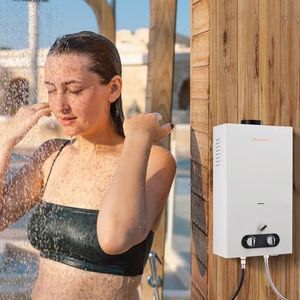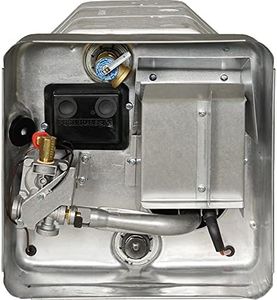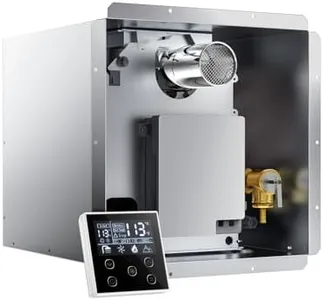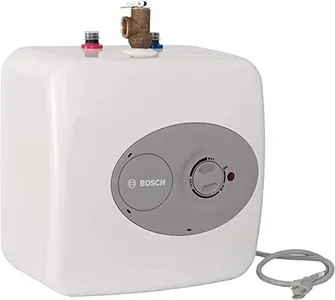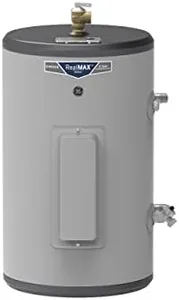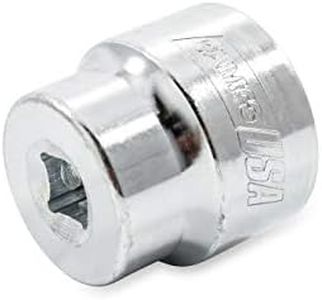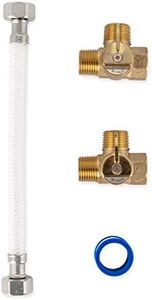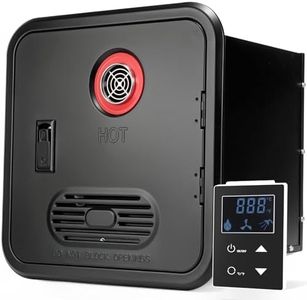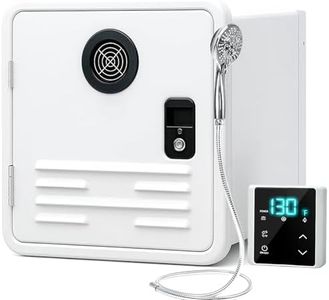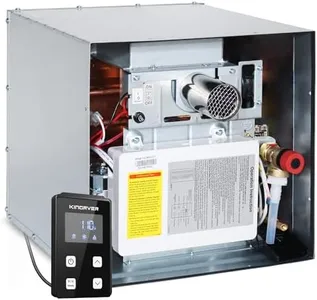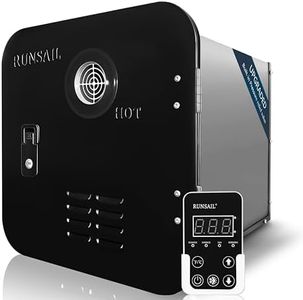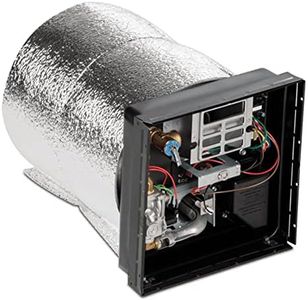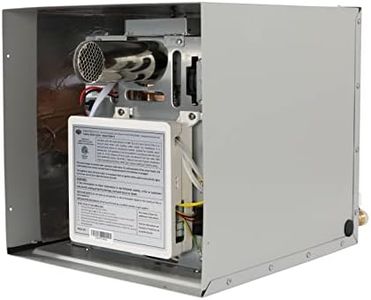We Use CookiesWe use cookies to enhance the security, performance,
functionality and for analytical and promotional activities. By continuing to browse this site you
are agreeing to our privacy policy
10 Best Rv Water Heaters 2025 in the United States
How do we rank products for you?
Our technology thoroughly searches through the online shopping world, reviewing hundreds of sites. We then process and analyze this information, updating in real-time to bring you the latest top-rated products. This way, you always get the best and most current options available.

Buying Guide for the Best Rv Water Heaters
Choosing the right RV water heater is crucial for ensuring a comfortable and convenient experience while traveling. The right water heater will provide you with a reliable supply of hot water for showers, washing dishes, and other needs. When selecting an RV water heater, it's important to consider several key specifications to ensure you get the best fit for your needs. Understanding these specifications will help you make an informed decision and enjoy your RV adventures to the fullest.CapacityCapacity refers to the amount of water the heater can hold and heat at one time. This is important because it determines how much hot water you have available for use. RV water heaters typically come in capacities ranging from 6 to 10 gallons. If you have a larger family or plan to use a lot of hot water, a larger capacity heater may be more suitable. For solo travelers or couples, a smaller capacity heater might be sufficient. Consider your typical water usage to choose the right capacity for you.
Fuel SourceThe fuel source is what powers the water heater. Common options include propane, electric, or a combination of both. Propane heaters are popular because they can be used off-grid and heat water quickly. Electric heaters are convenient when you have access to shore power. Combination heaters offer flexibility, allowing you to switch between propane and electric depending on your situation. Think about where you'll be traveling and your access to power sources to decide which fuel source is best for you.
Recovery RateThe recovery rate indicates how quickly the water heater can reheat water after it has been used. This is important for ensuring you have a continuous supply of hot water. Recovery rates are usually measured in gallons per hour (GPH). A higher recovery rate means the heater can provide hot water more quickly after the initial supply is depleted. If you plan to use a lot of hot water in a short period, look for a heater with a higher recovery rate. For occasional use, a lower recovery rate may be sufficient.
Size and WeightSize and weight are important considerations because they affect where and how you can install the water heater in your RV. Make sure to measure the available space and check the weight capacity of your RV to ensure the heater will fit and be safely supported. Smaller and lighter heaters are easier to install and may be more suitable for smaller RVs. Larger and heavier heaters may offer more capacity but require more space and support. Choose a size and weight that fits your RV's specifications and your installation capabilities.
Energy EfficiencyEnergy efficiency refers to how effectively the water heater uses fuel or electricity to heat water. This is important for conserving energy and reducing operating costs. Look for heaters with high energy efficiency ratings, as they will use less fuel or electricity to provide the same amount of hot water. Energy-efficient models are better for the environment and can save you money in the long run. Consider your energy usage and environmental impact when choosing an energy-efficient water heater.
Type of IgnitionThe type of ignition determines how the water heater is started. Common types include manual pilot light, direct spark ignition (DSI), and automatic ignition. Manual pilot lights require you to light the heater manually, which can be less convenient. DSI and automatic ignition systems are more user-friendly, as they allow you to start the heater with the push of a button. If you prefer convenience and ease of use, look for a water heater with DSI or automatic ignition. Manual ignition may be suitable if you don't mind the extra step.
Most Popular Categories Right Now
